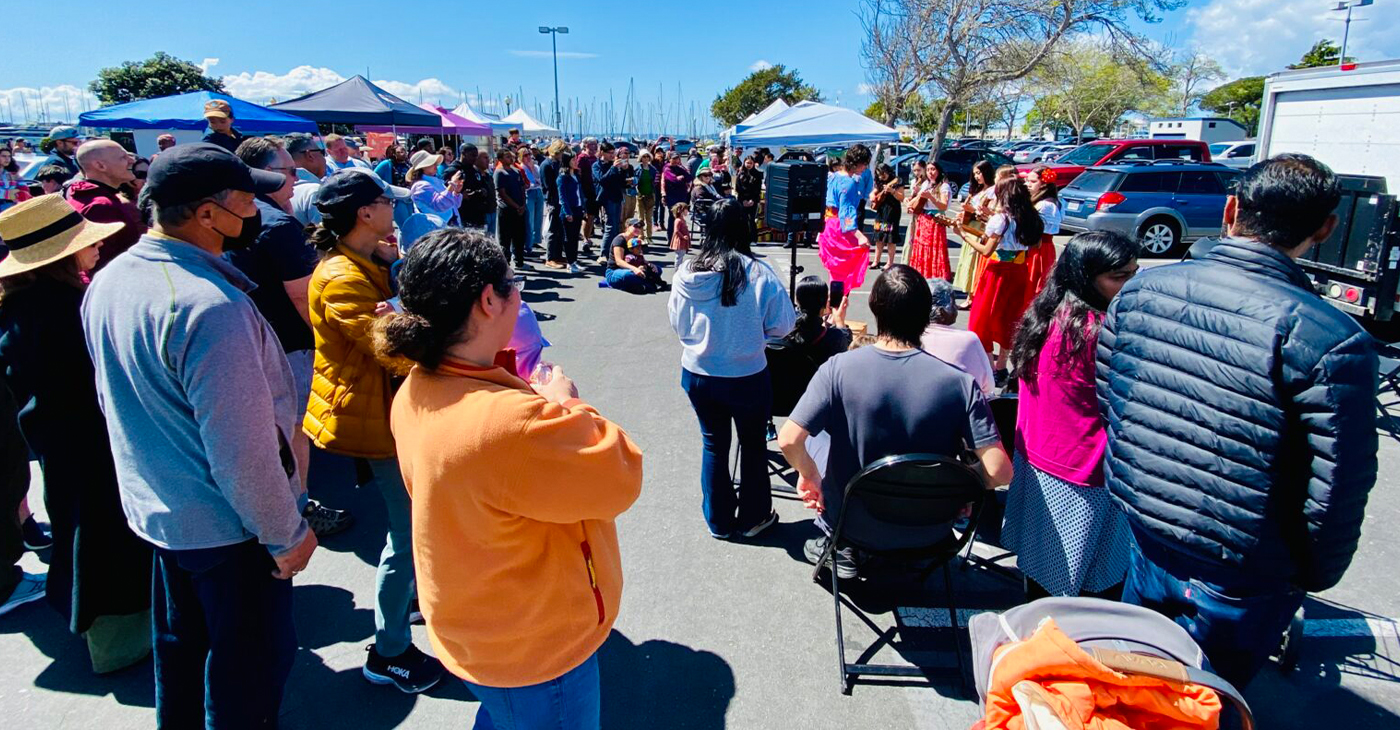Family
Family Act Key for Blacks, Coalition Says
WASHINGTON INFORMER — A national family and medical paid leave program must be passed by Congress to ensure all American workers can care for their families without worrying about jeopardizing their income, according to officials at The Leadership Conference for Civil and Human Rights, a District-based coalition of more than 200 national organizations that work to promote and protect the civil and human rights of all in the United States.
By Stacy Brown
A national family and medical paid leave program must be passed by Congress to ensure all American workers can care for their families without worrying about jeopardizing their income, according to officials at The Leadership Conference for Civil and Human Rights, a District-based coalition of more than 200 national organizations that work to promote and protect the civil and human rights of all in the United States.
Leadership Conference officials joined others at a Tri-Caucus briefing on the importance of paid family and medical leave at the federal level to achieve racial justice.
A panel experts at the June 5 gathering at the Rayburn House Office Building on Capitol Hill discussed a wide range of topics, most notably the current federal and state landscape of family and medical leave with a special focus on how the Family Act will make vital improvements for people of color.
The gathering was co-sponsored by the Lawyers’ Committee for Civil Rights Under Law, National Partnership for Women & Families, Black Women’s Roundtable, Family Values at Work, UnidosUS, United for Respect, and the Asian Pacific American Labor Alliance in conjunction with the Congressional Black Caucus, Congressional Asian Pacific American Caucus, and Congressional Hispanic Caucus.
“We believe passage of the Family Act is key for Black women and men to achieve economic security and prosperity,” said event moderator Melanie Campbell, who serves as president and CEO of the National Coalition on Black Civic Participation and convener of the Black Women’s Roundtable.
“As a program that ensures that people can take time from work when they need it to care for themselves and family, the Family Act speaks directly to the needs of Black women and their families because three out of four Black women — 75 percent — are the primary source of income in their family units,” Campbell said. “Also, nearly 30 percent of Black family caregivers are young family members between the ages 18 to 34 and who earn less than $30,000 annually.”
Earlier this month, Connecticut became just the seventh state to create a system of paid leave. Under the new law, minimum wage employees could have up to 95 percent of their pay covered, capped at $900 per week.
New York’s recently-passed paid leave policy offers only a 55 percent wage replacement, which will increase to 67 percent when the law is fully implemented.
“Paid leave is a critical step forward for women’s economic security, especially for low-wage workers and women of color who are an increasing number of primary breadwinners for their families,” Catherine Bailey of the Connecticut Women’s Education and Legal Fund told the Connecticut Mirror. “We are proud to join the rest of the world and become just the seventh state in the U.S. to create a system of paid leave.”
The need for all states to create a substantial family leave law is underscored by a recent Harvard University report.
“Following decades of decline, maternal deaths began to rise in the United States around 1990 — a significant departure from the world’s other affluent countries,” the report said. “By 2013, rates had more than doubled.”
The CDC now estimates that 700 to 900 new and expectant mothers die in the U.S. each year, and an additional 500,000 women experience life-threatening postpartum complications.
More than half of these deaths and near deaths are from preventable causes, and a disproportionate number of the women suffering are Black.
“Put simply, for Black women far more than for white women, giving birth can amount to a death sentence,” the Harvard report said. “African-American women are three to four times more likely to die during or after delivery than are white women. According to the World Health Organization, their odds of surviving childbirth are comparable to those of women in countries such as Mexico and Uzbekistan, where significant proportions of the population live in poverty.”
This article originally appeared in the Washington Informer.
Community
Richmond Nonprofit YES Nature to Neighborhoods Plans Major Renovation
Richmond nonprofit YES Nature to Neighborhoods is planning a significant renovation of its headquarters at 3029 Macdonald Ave., around 31st street. The nonprofit serving youth and families in Richmond is requesting a design review permit to demolish the one-story, 2,218-square-foot building and a 95-square-foot shed, and to replace them with a new 4,480-square-foot, two-story building.

The Richmond Standard
Richmond nonprofit YES Nature to Neighborhoods is planning a significant renovation of its headquarters at 3029 Macdonald Ave., around 31st street.
The nonprofit serving youth and families in Richmond is requesting a design review permit to demolish the one-story, 2,218-square-foot building and a 95-square-foot shed, and to replace them with a new 4,480-square-foot, two-story building.
The new building would consist of office and meetings spaces with a 345-square-foot addition to the existing garage on the property, according to city documents. The nonprofit will host youth, adult, and family programming on and off the site.
The nonprofit also proposes to repair sidewalks, replace planters and a fence, add lighting, and provide interior open space, among other improvements.
The city’s Design Review Board was set to review the plans at its meeting this evening on April 10. For more info, go to https://www.ci.richmond.ca.us/DocumentCenter/View/68830/3_PLN23-316-3029-MacDonald-Ave_DRB20240410—Apr-10
Community
Families Flock to New Farmers Market in Marina Bay
The City of Richmond’s first farmers market in Marina Bay kicked off Sunday, April 7 with a large swell of community members coming out to enjoy the occasion. The long-anticipated market set up shop in the parking lot off Regatta Boulevard and Melville Square in Richmond and featured music and dancing, arts and crafts, chess, multiple vendors and some fresh produce from 10 a.m. to 2 p.m.

By Kathy Chouteau
The Richmond Standard
The City of Richmond’s first farmers market in Marina Bay kicked off Sunday, April 7 with a large swell of community members coming out to enjoy the occasion.
The long-anticipated market set up shop in the parking lot off Regatta Boulevard and Melville Square in Richmond and featured music and dancing, arts and crafts, chess, multiple vendors and some fresh produce from 10 a.m. to 2 p.m.
Numerous families turned out for the event, many with their children and family dogs.
The market will continue on Sundays and is operated by the Richmond Certified Farmers Market Association. For more information or to become a vendor, go to https://cirichmondca-newsletter.app.transform.civicplus.com/forms/39634
Community
For Cervical Cancer Month, Medical Community Focused on Education
January was Cervical Cancer Awareness Month. Physicians, advocates and others in the medical community commemorated the month by raising awareness about a form of cancer they say is highly preventable and treatable. Cervical cancer is caused by a virus called the human papillomavirus (HPV) and it develops slowly over time but can be prevented with proper care in girls as young as 13 years old.

By Magaly Muñoz
January was Cervical Cancer Awareness Month.
Physicians, advocates and others in the medical community commemorated the month by raising awareness about a form of cancer they say is highly preventable and treatable.
Cervical cancer is caused by a virus called the human papillomavirus (HPV) and it develops slowly over time but can be prevented with proper care in girls as young as 13 years old.
Sonia Ordonez, an OBGYN and gynecology surgeon at Kaiser Permanente, stated that as soon as people with cervixes reach the maturity reproductive age, they should start taking preventative measures like getting the HPV vaccine. The vaccine involves a series of two-doses for people aged 9 through 14 or three-doses for people 15 through 45 years old.
“I see a lot of young women who can’t remember or may not have gotten [the vaccine] when they were younger, or maybe got one, but we can give them the series of vaccines and restart at any point in time,” Ordonez said.
She said that cervical cancer is not the only cancer caused by HPV. Strains of the virus can also lead to throat, anal and penile cancers.
Screening is also an effective way to check for cervical cancer and should be done every three years after someone turns 21, doctors recommend. It is best to start as early as possible to catch occurrences early.
Ordonez said that this cancer is also more likely found in people of color and has led to more deaths overall.
A Mayo Clinic article published last month stated that Black women are more likely to be diagnosed and die of cervical cancer, compared to White women in the U.S.
2,000 Black women are diagnosed every year with cervical cancer and 40% die as a result.
“This disparity is not due to genetic differences among White, Black or Hispanic women, but rather related to systemic racism, access to healthcare and socioeconomic factors,” Dr. Olivia Cardenas-Trowers, a Mayo Clinic urogynecologist, said in the article.
Ordonez stated that immigrant women are also highly susceptible to the cancer, as many Latin American countries may not have accessibility to screenings or lack of insurance makes it harder for them to get tested.
Hispanic women are 40% more likely to be diagnosed with cervical cancer, and 30% more likely to die from it, as compared to non-Hispanic White women, according to the Office of Minority Health.
Family medicine physician, Joy Anyanwu, stated that the pandemic contributed to hesitancy about getting cervical cancer screenings among some women. Other factors are people’s aversion to vaccines, parents not wanting to believe that their children are or will become sexually active, and doubt about the overall effectiveness of the vaccine.
“The vaccine is very safe — over 97% effective in preventing cervical cancer,” Anyanwu said. “Even if you aren’t having sex, the earlier you start would actually help.”
Anyanwu said she understands that parents might not want to ask questions about their children’s reproductive health, but it’s a mindset that can be a barrier to having important conversation about prevention or care.
To keep families their families and communties healthy, the doctor emphasized that people should prioritize keeping up with their vaccine series and going to screenings every year.
-

 Activism4 weeks ago
Activism4 weeks agoOakland Post: Week of March 27 – April 2, 2024
-

 #NNPA BlackPress4 weeks ago
#NNPA BlackPress4 weeks agoCOMMENTARY: D.C. Crime Bill Fails to Address Root Causes of Violence and Incarceration
-

 #NNPA BlackPress4 weeks ago
#NNPA BlackPress4 weeks agoMayor, City Council President React to May 31 Closing of Birmingham-Southern College
-

 #NNPA BlackPress4 weeks ago
#NNPA BlackPress4 weeks agoBeloved Actor and Activist Louis Cameron Gossett Jr. Dies at 87
-

 Community1 week ago
Community1 week agoFinancial Assistance Bill for Descendants of Enslaved Persons to Help Them Purchase, Own, or Maintain a Home
-

 Activism3 weeks ago
Activism3 weeks agoOakland Post: Week of April 3 – 6, 2024
-

 Business1 week ago
Business1 week agoV.P. Kamala Harris: Americans With Criminal Records Will Soon Be Eligible for SBA Loans
-

 Activism2 weeks ago
Activism2 weeks agoOakland Post: Week of April 10 – 16, 2024




















































